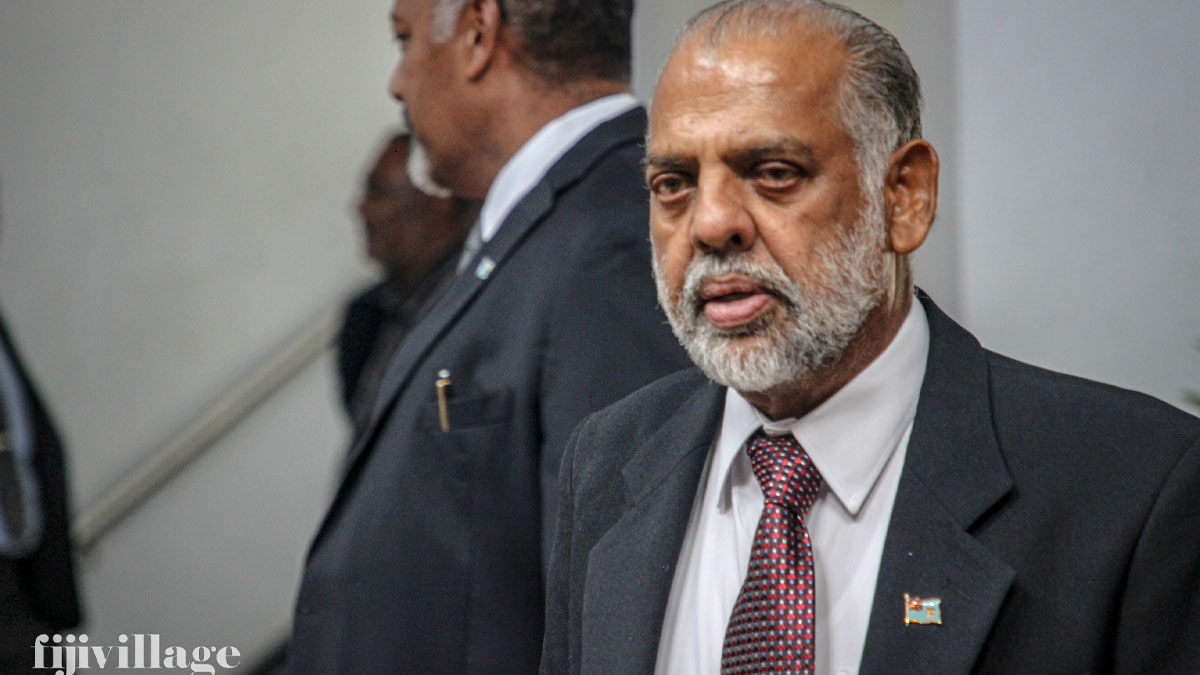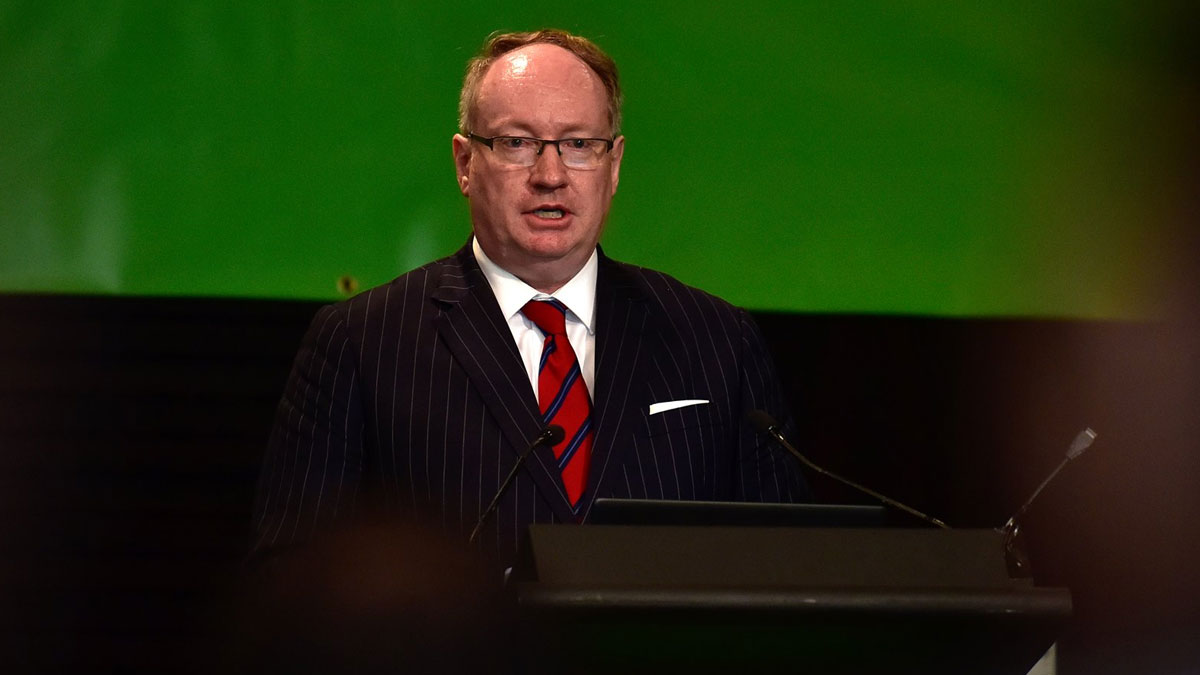
The Fiji government through the Employment Ministry will be visiting our Pacific Australia Labour Mobility (PALM) workers in October to meet with their Australian counterparts, employers and Fijian workers under the scheme to discuss issues faced by our workers such as racism and bullying, workloads, exploitation, threats, unsafe practices, unfair termination, forced labour etc.
Following questions raised by fijivillage News on the grandfather highlighting the plight of his deceased granddaughter, Christine, Minister for Employment, Agni Deo Singh confirmed that the Ministry is fully aware of the case that was recently posted on Facebook, relating to the former (PALM) female worker that passed away in June 2024.
Singh highlighted that the deceased worker, Christine Lewailagi departed Fiji to work for Midfield Meat Group in Victoria in May 2022 under the scheme.
He says on 17th June 2024, the Ministry received the incident notification from the Department of Employment and Workplace Relations and the report highlighted that Lewailagi was suffering from headache a week earlier and was taken to hospital for assessment.
Singh says Christine was then transported the same weekend to Austin hospital in Melbourne for further assessment and underwent two surgeries for a brain-tumor.
The report also highlighted that she was on life-support and may not recover, which was very unfortunate.
The Minister confirms Lewailagi passed away on 19th June 2024 without recovery and her body was repatriated back on 6th July for burial in Fiji. The Employment Minister further highlighted that the employment conditions and issues highlighted in the social media are being looked at with deep concerns through the Country Liaison Officer based in Victoria to ensure that the issues highlighted are addressed accordingly.
Singh says the Country Liaison Officer together with the Department of Employment and Workplace Relations will verify issues with the employer and our Fijian workers to ensure that the welfare and wellbeing of our Fijian workers engaged under the scheme are well protected and they are treated with respect. He says the Ministry will strengthen its collaboration with Australian authorities and employers for better oversight mechanisms and ensure compliance with fair labour practices.
This will involve regular workplace inspections and audits, and a zero-tolerance policy towards any form of exploitation or mistreatment.
Singh adds the Australian Workers Union (AWU) during the Labour Mobility Stakeholder Engagement Workshop in Suva last week also assured their support in terms of ensuring that the minimum standards are complied with by the approved employers.
He says as part of the Vuvale partnership agreement, the Employment Ministry will continue to strengthen partnership through ongoing discussions with its Australian counterpart, specifically Department of Foreign Affairs and Trade (DFAT) and DEWR to address ongoing concerns under the PALM program.
Following the death of a Fijian woman who was under the Pacific Australia Labour Mobility (PALM) Visa 403, serious allegations are being raised in relation to Fijians working under the scheme which has been labelled as modern day slavery filled with exploitation, racism, bullying, and unsafe and unhealthy conditions.
Details have emerged where a grandfather has alleged that he lost his beloved granddaughter, Christine, a young Fijian woman full of life, promise, and hope.
He says Christine's story is one of resilience and dedication, but also of exploitation, fear, and heartbreak.
The man says Christine’s death, while a personal tragedy for him and her family, is also a symbol of the larger, systemic problem that exists within Australia’s immigration and labour systems.
He says the PALM Visa 403, which is intended to provide opportunities for Pacific Islanders, has instead become a tool for exploitation.
The Melbourne man says these workers are treated as expendable labour, with little to no protection or support, and Christine's employer allegedly didn’t even visit her in the hospital as she lay dying in the Intensive Care Unit.
He says they showed no concern for her welfare, and their absence speaks volumes about how little these workers' lives are valued. The man says Christine's story must be a force for change and we cannot allow her death to be in vain.
He is determined to establish a charity in her name, one that will raise money to help address the poverty and health issues faced by Pacific Islanders, both in Australia and back home in Fiji.
But he says a charity alone is not enough as the Australian government must be held accountable for the conditions these workers are subjected to.
The man stresses that the PALM Visa 403 must be reformed to provide genuine protections for Pacific Island workers and employers who exploit and abuse their workers must be held to account, and the government must take responsibility for ensuring that all workers, regardless of their visa status, are treated with dignity and respect.
He asks why are the Pacific Islanders treated as second-class citizens, forced to endure exploitation and abuse for the sake of a paycheck.
The emotional grandfather says Christine went to Australia with dreams of supporting her family back in Fiji, working under the Pacific Australia Labour Mobility (PALM) Visa 403.
He says little did they know, this so-called "opportunity" would lead to her untimely death and expose the systemic abuse and modern-day slavery that so many Pacific Island workers endure.
The grandfather says Christine lived with him on weekends in his Camberwell home, a sanctuary where she found brief respite from the gruelling conditions of her work in Warrnambool.
He says it wasn’t until after her sudden passing that he began to uncover the full extent of the hardships she and her colleagues faced.
The Melbourne based man says what her workmates shared with him was shocking and deeply distressing.
He says Christine’s death had not only robbed him of a granddaughter but revealed a much broader tragedy—the appalling treatment of Pacific Island workers in Australia, and the devastating impact it has on their lives and families.
Every single Fijian worker he spoke with recounted incidents of racism and bullying.
Supervisors yelled, swore, and used derogatory, racist names towards them. When these workers expressed their discomfort, they were told that this behaviour was simply "normal" in Australia and that they needed to toughen up.
The grandfather says one worker told him that when a Fijian worker called in sick, the job that would typically be done by two or three people was given to just one Fijian worker. In contrast, when a worker of a different race was absent, two or three people were immediately assigned to cover that person's workload.
He says this discrimination wasn't subtle; it was blatant and cruel.
He adds if a worker fell ill, they had to call and ask permission to see a doctor — a request that was almost always denied.
The man alleges when they did manage to take a sick day, the hours were deducted from their annual leave, leaving them with fewer days off for rest and recuperation.
Christine grandfather says Christine, like many others, was too afraid to seek medical help, fearing repercussions from her employer.
It was also highlighted that without access to Medicare, these workers are forced to pay a minimum of $75 just for a doctor’s visit.
He says these costs aren’t reimbursed, and the workers are left to bear the financial burden of their own healthcare.
Another worker shared a horrifying incident where an entire cow fell on him while he was working.
The accident led to a costly hospital visit that set him back $500, which the company refused to reimburse.
The grandfather says the workers are constantly threatened with termination and deportation if they don’t comply with unreasonable demands, such as working additional shifts on weekends despite their contracts stating they were only required to work Monday to Friday.
He says some workers have been fired without any warning and sent back to Fiji.
It was also highlighted that one worker shared how he broke his shoulder while on the job. He was promised light duties while awaiting surgery, but this promise was not kept. Instead, he was forced to continue working despite the injury, exacerbating his condition and leaving him in constant pain.
fijivillage News has sent questions to the Australian High Commission. We are still awaiting their response.
Stay tuned for the latest news on our radio stations


